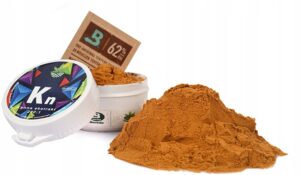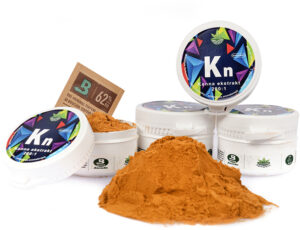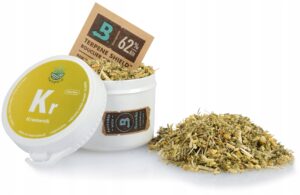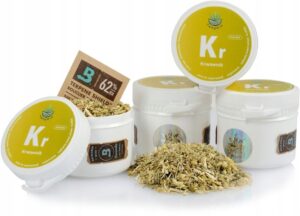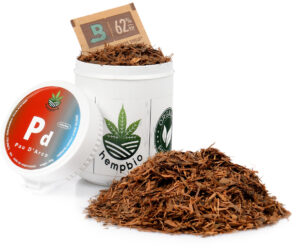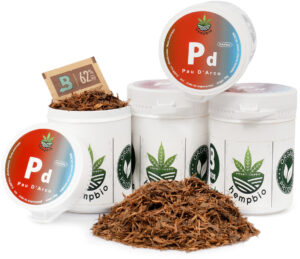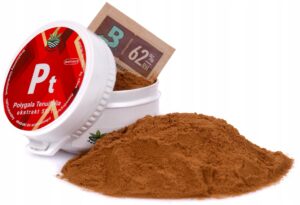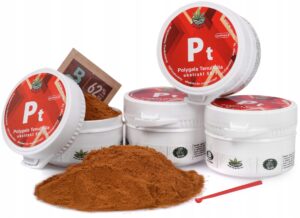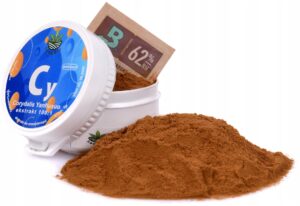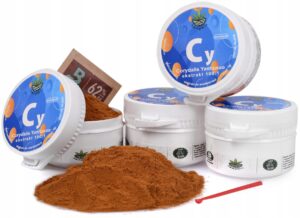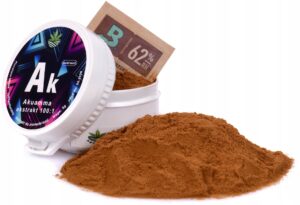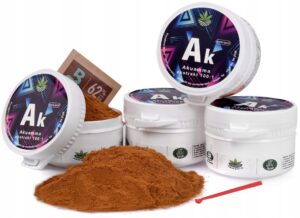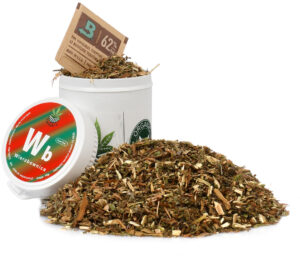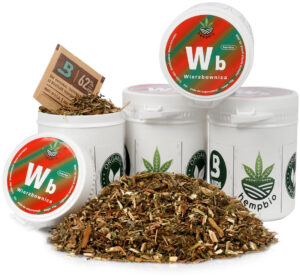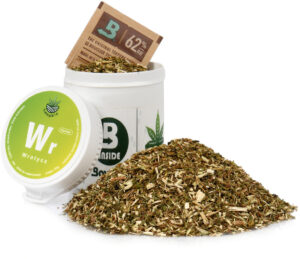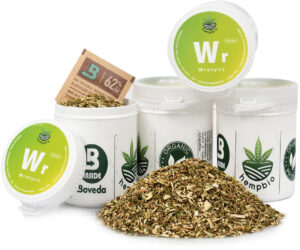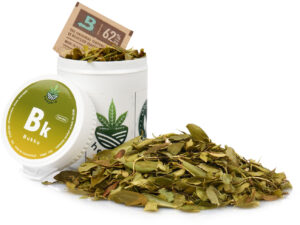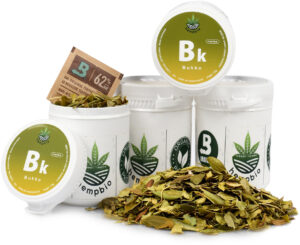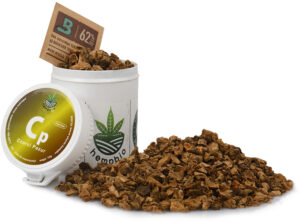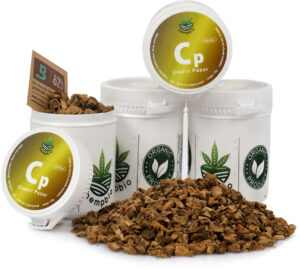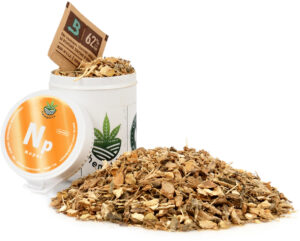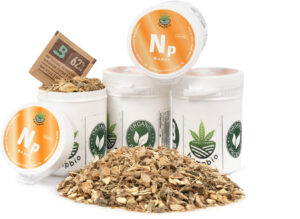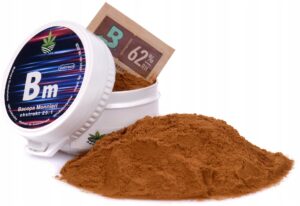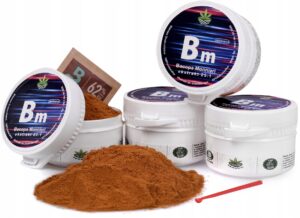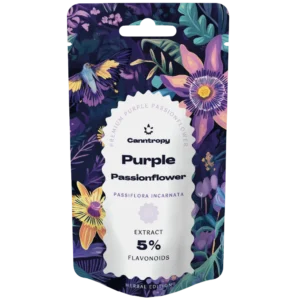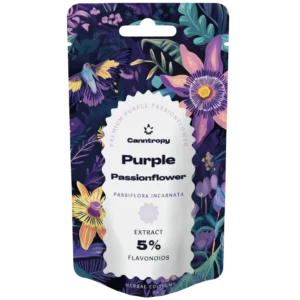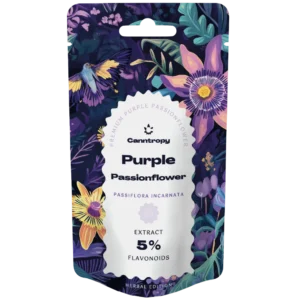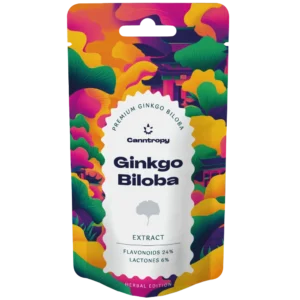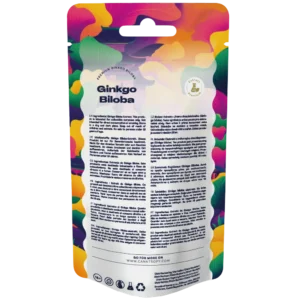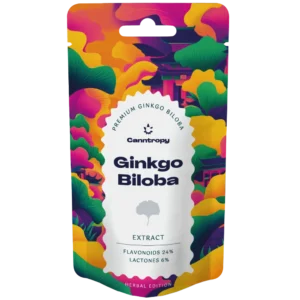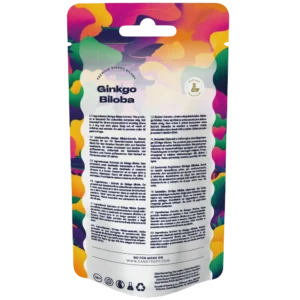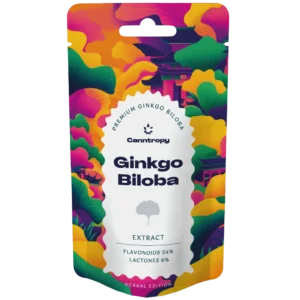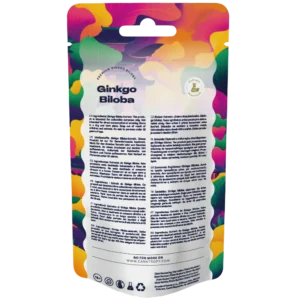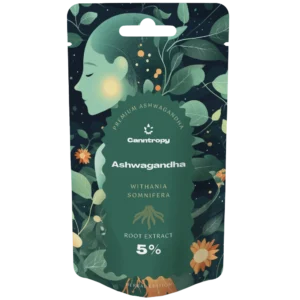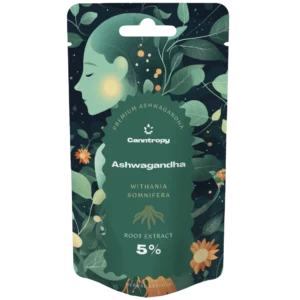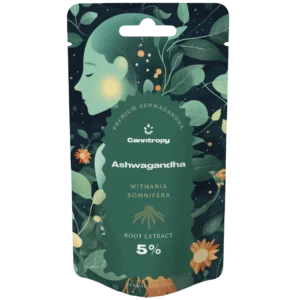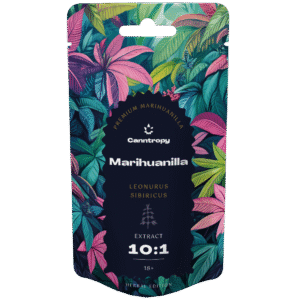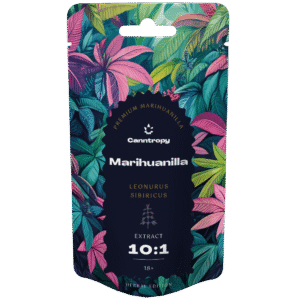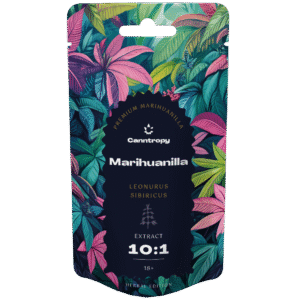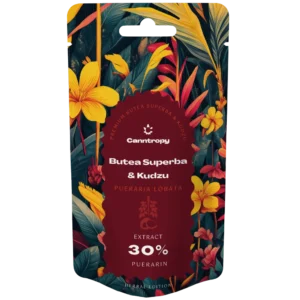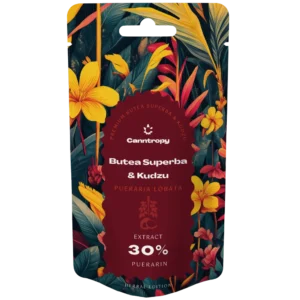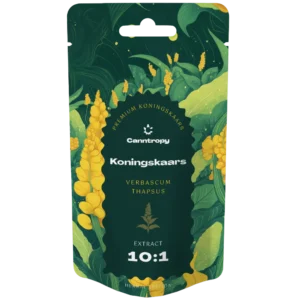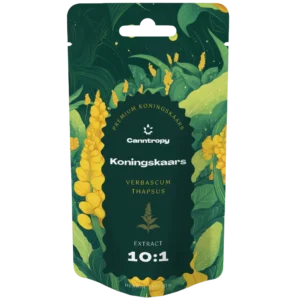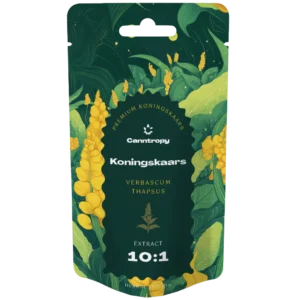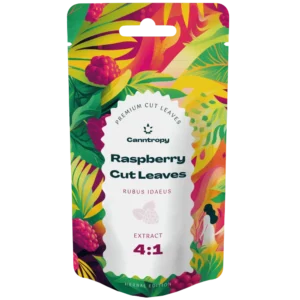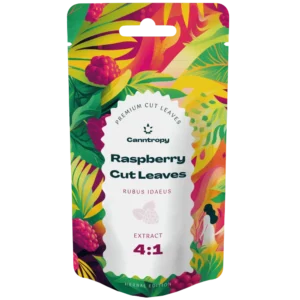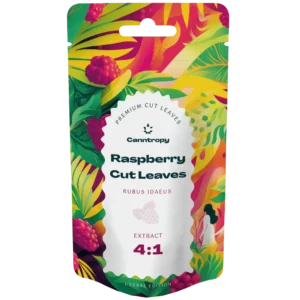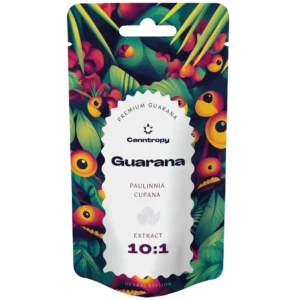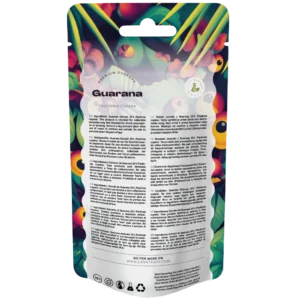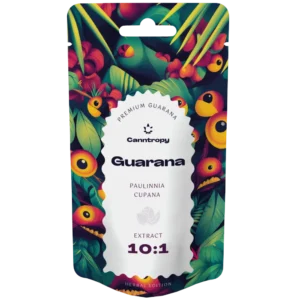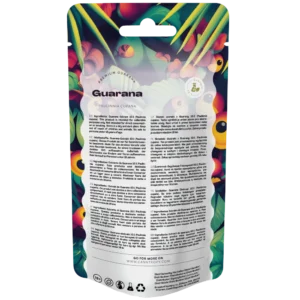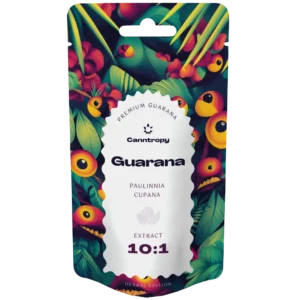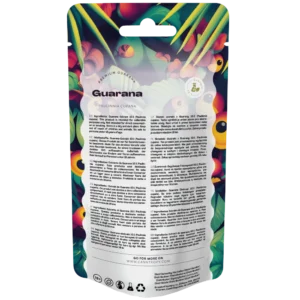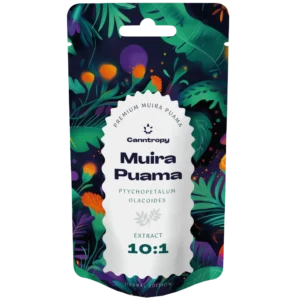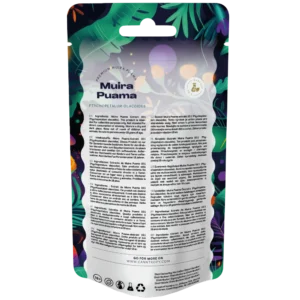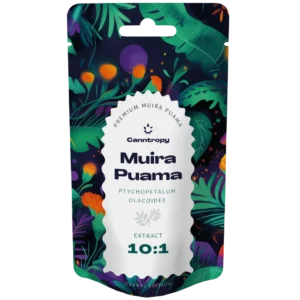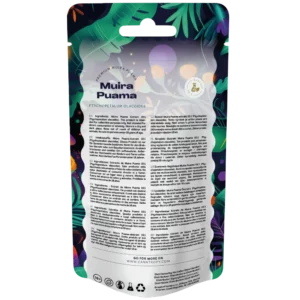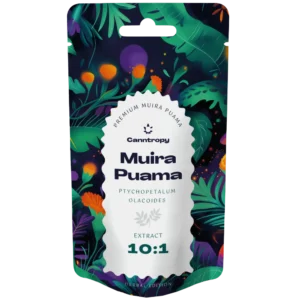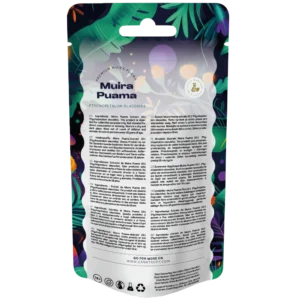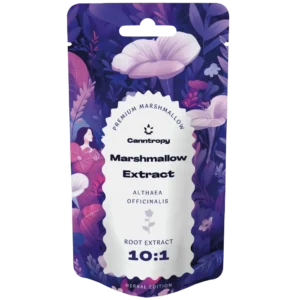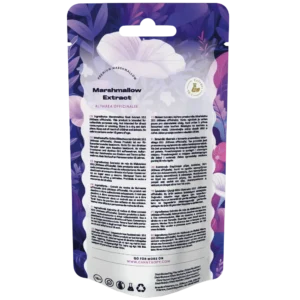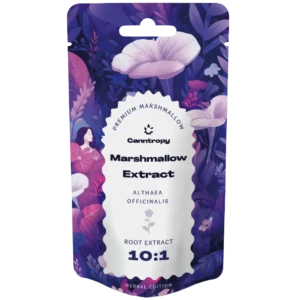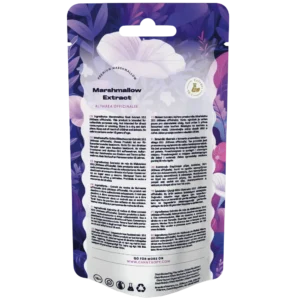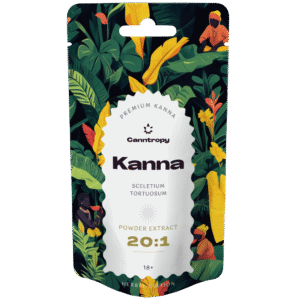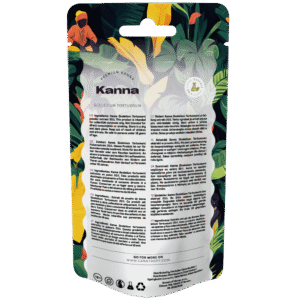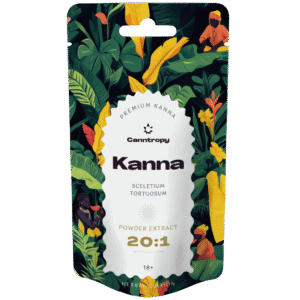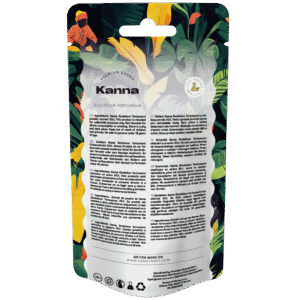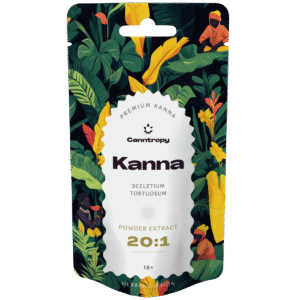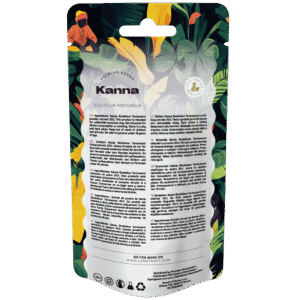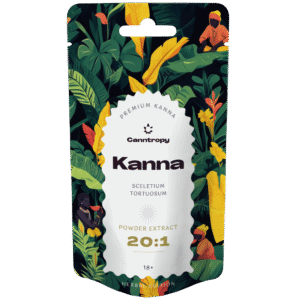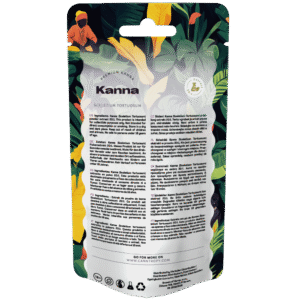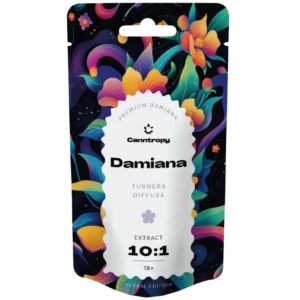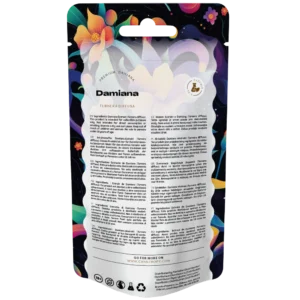Herbs
Herbs for vaporization / Herbs for Herbs. / Herbal mixtures for smoking and for vaporization - of the highest quality.
Are you looking for high quality herbs? Have you heard of aromatherapy, a way known for thousands of years to improve health? Or would you like to find a healthier substitute for tobacco? Check out our medicinal herbs!
Herbal therapy has been known for thousands of years. They can be taken in the form of infusions, but not only - properly composed herbs can also be used in vaporization.
It positively affects the body, improving or regulating its functioning. You will find the highest quality herbs in our store. We offer only legal and safe products that release precious substances.

Herbs for Vaporizing Herbs
We only work with trusted and certified suppliers, quality and safety is the foundation of hemp buch. Each batch of herbs contains only natural ingredients and comes from organic cultivation.
What herbs can you find in our store?
Our specialty is top-quality, organic dried hemp. But there are many more herbs - we especially recommend trying blends containing sage, St. John's wort or mint.
How does vaporizing herbs affect our body?
Smoking herbs improves our mood and enhances relaxation.
Smoking herb blends are also a healthier alternative to tobacco. Ground using a special grinder, the dried-herbs can be used to support stress reduction, as well as help fight insomnia. Some herbs also exhibit antiseptic effects, so they can be used supportively when treating a cold.
Which herbs to vaporize and smoke? Vaporization of herbs - temperatures
Among our offerings you will find dried CBD and CBG, plantain, lancet, lavender, eucalyptus, St. John's wort or mint. The herbs assimilated with the vaporizer are heated, so no harmful tarry substances enter our body. And how specific vaporization of herbs Does it affect our body?
- Sage - Has a beneficial effect on the respiratory tract and regulates digestion. It also shows positive effects during menstrual pain. Recommended vaporization temperature: 125-180°C.
- Muira puama. Improved sexual performance, impact on libido in both sexes. Improves mood. Recommended vaporization temperature: 175-200°C.
- St. John's Wort - It makes it easier to fall asleep, and also helps fight depressive states and relieves anxiety. St. John's wort also exhibits antimicrobial activities. Recommended vaporization temperature: 100-130°C.
- Chamomile - Recommended for stomach problems; vervain relieves stress and tension. Recommended vaporization temperature: 120-150°C.
- Melissa - It reduces insomnia, relieves headaches and tension. It is a proven sedative, also known for its unique taste and aroma. Recommended vaporization temperature: 142°C.
- Lavender - exhibits antiseptic effects, and also aids sleep and relaxation. Recommended vaporization temperature: 100-165°C.
- Peppermint - Supports muscle function by helping to nullify cramps, and boosts immunity. Recommended vaporization temperature: 160°C +/- 20°C.
- Hedgehog Has anti-inflammatory, antifungal, antibacterial and antiviral effects.
- Lance-leaved plantain is, on the other hand, an option for dry lovers who are looking for support for the proper work of the upper respiratory tract. Recommended vaporization temperature: 150°C.
- Hops Recommended vaporization temperature: 175-200°C
- Lemongrass Recommended vaporization temperature: 150-160°C.
- Verbena herb Recommended vaporization temperature: 130-160°C.
- Catuaba Recommended vaporization temperature: 150-180°C.
- Linden Recommended vaporization temperature: 150°C.
Which herbs to choose for vaporization?
The choice of herbs for vaporization depends on several factors, such as:
Your goals:
- Relaxation and stress reduction: Melissa, lavender, chamomile, hops, St. John's wort.
- Pain relief: Arnica, turmeric, ginger.
- Improving digestion: Peppermint, basil, oregano, cumin.
- Immune enhancement: echinacea, elderberry, thyme.
- Mood improvement: Melissa, St. John's wort, lavender.
- Sen: Melissa, lavender, chamomile, hops.
Your Taste:
There are many different herbs with different flavors and aromas. Experiment to find the ones you like.
Availability:
Some herbs are more readily available than others. You can buy them in herbal stores, health food stores or online.
Quality:
Make sure you buy quality herbs from a reputable source.
FAQ - Herbs for vaporization and smoking
1. what is herbal vaporization?
Definition: The process of heating herbs to the right temperature to release their active ingredients without burning them.
Benefits: Elimination of harmful tar, healthier alternative to smoking.
2 What herbs can be vaporized?
Our offer: Dried CBD and CBG, sage, St. John's wort, peppermint, lavender, eucalyptus, chamomile, lemon balm, echinacea, plantain, hops, lemongrass, verbena, catuaba, lime.
3 What are the advantages of vaporizing herbs?
- Mood improvement: Relaxation, stress reduction, better sleep.
- Health support: Decontamination, supporting the treatment of colds.
- An alternative to tobacco: A healthier option without tar.
4. what herbs to choose for vaporization to achieve specific results?
- Relaxation and stress reduction: Melissa, lavender, chamomile, hops, St. John's wort.
- Pain relief: Arnica, turmeric, ginger.
- Improving digestion: Peppermint, basil, oregano, cumin.
- Strengthening immunity: Coneflower, elderberry, thyme.
- Mood enhancement: Melissa, St. John's wort, lavender.
- Better sleep: Melissa, lavender, chamomile, hops.
5. what are the recommended vaporization temperatures for different herbs? Vaporization of herbs - temperatures
Vaporization of herbs - temperatures of individual products:
- Sage: 125-180°C
- Muira puama: 175-200°C
- St. John's Wort: 100-130°C
- Chamomile: 120-150°C
- Melissa: 142°C
- Lavender: 100-165°C
- Peppermint: 160°C ± 20°C
- Hedgehog: 150°C
- Lance-leaved plantain: 150°C
- Hops: 175-200°C
- Lemongrass: 150-160°C
- Verbena herb: 130-160°C
- Catuaba: 150-180°C
- Linden: 150°C
6. What are the health benefits of using herbs for vaporization?
- Regulation of the body: Improving function, regulating digestion.
- Health support: treating colds, reducing stress, improving sleep, antiseptic and anti-inflammatory effects.
7. Where do our herbs come from?
Source: Trusted and certified suppliers.
Quality: Organic, natural ingredients, the highest quality.
8. What are the differences between vaporization and traditional herb smoking?
Vaporization: Heating herbs without burning, no tarry substances.
Traditional smoking: Burning herbs, the possibility of inhaling harmful substances.
In recent years, a practice known as vaporization. It is a process that uses evaporation technology to inhale the active ingredients contained in herbs, dries and essential oils. However, what are these herbs for vaporization And what health benefits can they bring?
How do herbs work in the vaporization process?
Vaporization is an increasingly popular method of consuming herbs that allows active plant components to be directly introduced into the body through the respiratory tract. The process differs significantly from traditional methods, such as oral consumption or external application. In this article, we will discuss how herbs work during vaporization, the mechanisms of their effects on the body, and the benefits and potential risks associated with this method.
Mechanisms of action of herbs
Herbs contain a number of active chemical constituents, such as terpenoids, flavonoids, tannins, alkaloids and essential oils. These compounds can affect various systems in the body, including the nervous, endocrine and metabolic systems. During vaporization, the active ingredients are immediately absorbed by the mucous membranes of the lungs, allowing the therapeutic effect to be achieved quickly.
Vaporization process
Vaporization involves heating herbs to the proper temperature, at which point the active ingredients escape in the form of steam or mist. Vaporization devices allow precise temperature control, which is key to maintaining efficacy and minimizing potential side effects. The technique avoids the negative effects of burning plant material, such as smoke inhalation or exposure to toxic chemicals.
Effect of temperature on the effect of herbs during vaporization
Temperature plays an important role in the vaporization process. For most herbs, the optimal temperature range is between 160 and 250 degrees Celsius, although some, such as lavender and eucalyptus, can be effectively vaporized at lower temperatures. Precise temperature control preserves the integrity of the active ingredients and maximizes their therapeutic effects.
Active components of herbs and their effects on the body
Terpenoids and flavonoids are key components of many herbs that exhibit anti-inflammatory, antioxidant and calming effects when vaporized. Flavonoids can support the immune system and have anti-cancer effects, while terpenoids are known for their relaxing and analgesic properties. Essential oils, which are released during vaporization, have strong antiseptic effects and can help treat respiratory infections.
Practical tips for those starting out in the adventure of vaporizing herbs
Before you embark on the adventure of vaporizing herbs, it is worth noting a few practical aspects:
- Choosing the right vaporization device - there are many options, from conventional vaporizers to advanced electronic devices with precise temperature control capabilities.
- Storage and preparation of herbs - store them in a dry, dark place, and grind or crush them thoroughly before use to increase the contact surface with the active ingredients.
- Dosage and frequency - always follow the recommendations of the manufacturer or phytotherapy specialist to avoid unwanted side effects.
- Consult with your doctor - especially if you have any chronic diseases or are taking medications, it is a good idea to consult your doctor before starting herbal therapy.
Safety and effectiveness Herbal vaporization is much safer than traditional smoking because it does not require burning the plants, eliminating the risk of inhaling harmful substances such as carbon monoxide or toxins. In addition, vaporizing herbs allows better absorption of active ingredients directly into the lungs, resulting in faster action and more effective use of the plants' therapeutic properties.
Health benefits Vaporizing herbs can be extremely helpful in alleviating the symptoms of allergies and asthma, thus gaining recognition among those suffering from these chronic conditions. In addition, they can aid in the treatment of chronic inflammation, which is the cause of many diseases of civilization, such as arthritis and heart disease. Vaporizing herbs with analgesic and anti-inflammatory properties can significantly reduce pain without the side effects typical of synthetic drugs.
Adaptogens and the immune system Many herbs have adaptogenic properties that help the body cope with stress and disease by modulating the immune response. Vaporizing these plants can increase resistance to infection and strengthen the immune system, which is especially important in the face of modern health challenges.
Treatment of pain and inflammation Herbs such as peppermint, rosemary and cloves can be used to relieve pain and reduce inflammation. Their analgesic and anti-inflammatory effects have long been known, and vaporization makes it possible to use these properties quickly and effectively without negatively affecting the body.
Improving the function of the respiratory system Vaporizing herbs can significantly improve respiratory function, especially in people suffering from respiratory diseases. Improved lung ventilation and reduced irritation are just some of the benefits that can be gained from regular use of vapor inhalation.
Herbs as a source of relaxation and mental well-being Inhalation of herbs with calming effects, such as lavender or lemon balm, can be an effective method for improving sleep quality, reducing stress and anxiety. In addition, herbal inhalations can support the body's regenerative processes and contribute to an overall sense of mental well-being.
Taking precautions Despite the many benefits, it is important to remember to exercise caution when using herbs for vaporization. Some plants can cause allergies or drug interactions, so it's always a good idea to consult a doctor or phytotherapy specialist before starting regular inhalations.
Herbal vaporization is a modern and safe method of delivering active plant constituents to the body that can provide numerous health benefits. From relieving allergy symptoms to supporting the immune system and improving respiratory function, vaporizing herbs can be a valuable complement to traditional treatments. However, it is worth keeping individual needs in mind and consulting with experts to maximize benefits with minimal risk.
Choosing the right herbs
Each herb has its own unique properties that can affect your well-being and health. When choosing herbs for vaporization, it is worth considering:
- Action: Herbs can have a variety of effects, from calming to stimulating. For example, lavender is known for its relaxing properties, while peppermint can help with digestion and detoxification.
- Allergies: Make sure you are not allergic to the chosen herb.
- Target: If you have specific health goals, such as improving sleep quality or relieving stress, you can look for herbs with the right properties.
- Availability: Some herbs are more readily available than others; choose the ones that are most attainable for you.
Vaporization devices
There are several types of vaporization devices, each with its own unique features:
- Electric: They are convenient and easy to use, but can be more expensive and require access to electricity.
- Manual: They require manual warm-up, which can be more time-consuming, but are cheaper and independent of the power source.
- Portable: Ideal for travelers or physically active people, they allow vaporization anywhere.
When choosing a device, pay attention to:
- Temperature: Some herbs require different temperatures for optimal effect; a good device will allow you to set them precisely.
- Performance: Devices with better performance will provide more intensive vaporizations and longer operating time.
- Hygiene: Ease of cleaning and maintenance of the device is crucial to your safety.
Health and safety issues
To ensure safe vaporization, you should:
- Avoid overheating: Herbs can be burned, which can lead to the release of harmful substances.
- Clean the device regularly: Use the appropriate cleaning products and procedures recommended by the manufacturer.
- Observe the body's reactions: If alarming symptoms appear, stop using the herb in question or consult a specialist.
